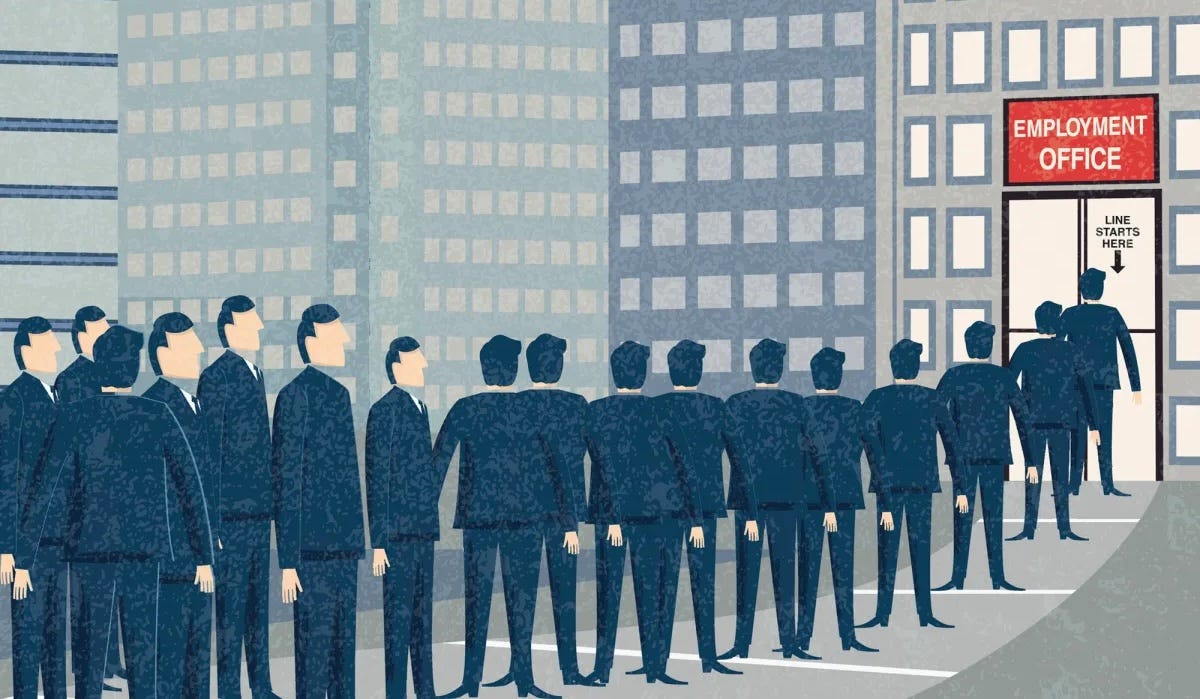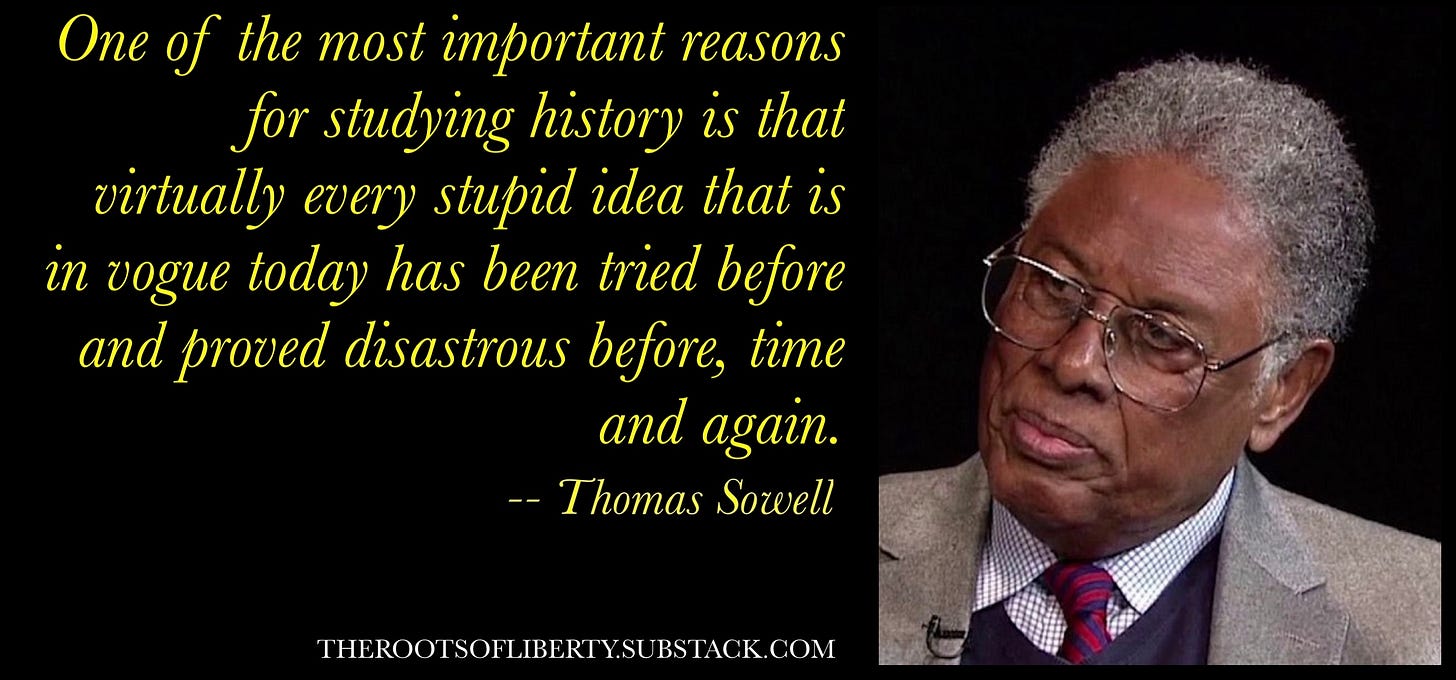California just imposed a $20 minimum wage on fast food chains with more than 60 locations. People are shocked, shocked!, that some places are cutting back on staff and others are closing as a result of this market distortion. As some of us are fond of saying, the true minimum wage is always zero.
The first minimum wages were enacted in the late 1800s to protect the jobs of white workers from blacks who were willing to do the same for less money. The dirty reality of minimum wage laws - that they hurt the most disadvantaged workers the most - remains to this day. An employer forced to pay above-market for a particular job will seek the most qualified for that job, and the higher wage will entice the higher-qualified to take jobs that would have gone to those with the least experience. Moreso, an above-market wage removes the "punishment" that racist hirers suffer. The employer who won't hire blacks reduces his available pool of employees, meaning that it's likelier he will have to pay more than his competitors for labor, and thus suffer a disadvantage. Minimum wage laws obviate that market pressure. Rather than helping those at the bottom, minimum wage mandates remove the lowest rungs of the economic ladder.
Today's bit isn't about the minimum wage itself, however. It's about why some continue to believe they can "socialize" businesses' earnings via that and other mechanisms.
It's popular, nowadays, to criticize the greed of big companies, to cite (usually misleading) statistics about how much money companies or their CEOs make, and to argue that employees are exploited by their bosses.
Yes, it is true that some businesses make major bank, that Jeff Bezos, Elon Musk, Bill Gates, and their peers have achieved a level of wealth impossible for most to truly grasp.
The envy classes look at that wealth and gripe about how it could be better utilized (as in "I or those I champion, rather than they, should benefit from their success).
What the envy classes never seem to consider are the failures.
The Democratic Socialists of America want to impose an "employee ownership" model on the American economy, presumably out of the simplistic belief that success should be shared among all those who contributed to it. If you happen to encounter someone of that mind set, ask if employees should share in failure. If a business starts to lose money, should some of the money the employees receive be clawed back? Should an employee be forbidden from quitting? Should losses be shared among all workers, rather than being covered by the boss? Should a tight-cashflow period or a lull in revenue be borne by everyone, even to the point of working for free or putting money in from their own pockets?
If the answer to any of these is "no," then employees are not truly owners in such a model. They reap the benefit of success but shoulder none of the risk of failure.
Which, if we are to be cynically honest, is what most socialists expect. And what most "tax the rich" expect.
How many in the envy classes envy the entrepreneurs that didn't succeed? That worked for years on a business idea with little to show for their effort? That burned through tens or hundreds of thousands in savings without good outcome?
There's a reason that societies that socialize risk as well as reward have always been poor. It boils down to Other People's Money and the reduced level of care regarding it.
Watch this short clip of Milton Friedman explaining the differences between spending your own money and spending someone else's money, and spending on yourself and spending on others.
There's a reason that capitalism works better than anything else. That reason is self-interest. People attend to themselves with much greater care.
There's a reason that many deride capitalism. That reason is risk aversion. It's a lot "safer," at least in a superficial sense, to empower government to take from others to benefit yourself or those you champion than to trust that which is not under your control, i.e. market forces. No matter that market forces have demonstrably worked far better than any central planning or big government ever has.
There's a reason that socialism is so alluring. That reason is a blend of laziness and envy. If your life can be made easier by empowering government to take from the successful to give to you, you're apt to ignore both the injustice and the untenability.
People are very good at turning a blind eye to truths that don't satisfy their lizard brains, especially in affluent societies where the risk of that blind eye is rarely personally catastrophic. This is why stupid ideas like minimum wages persist and why the lessons of history are so widely ignored.
The only way people can be prompted to act with care is if they have skin in the game. We should demand that of all those who would take from others. Bet that'll shut many of them up, right quick.






Employee ownership is en vogue right now and your insight - on sharing the risks - is a dimension that isn't discussed. Ever. There are, of course, plenty of examples where an employee ownership model "just makes sense". For instance, a newer, small startup that is attracting unique talent and the owner wants to share potential reward AND risk as the company grows - building in employee ownership from the start. Or for succession planning, where the owner simply doesn't want his business to ever sell out to another owner - and is intent on not passing ownership to his heirs, for any number of perfectly legitimate reasons, including that he may have no heirs apparent.
But it's not for "us" - the Royal Us - to decide. It's not our property.
As an evil rich owner for 44 years, the envy class has ZERO idea what we go through. I joke that I haven’t had a real vacation in 44 yrs, it’s actually a true statement. No matter where I went if it was a work day I checked email (phone messages and letters in the olden days) checked payables, receivables, new orders etc the business was always on my mind. When an employee makes a mistake the company eats it. Example: we had an email hack and a person posing as our new CEO asked accounting manager to send two $35,000 checks FedEx to two locations for lawyers . It was fraud, she didn’t verify and the company is our $70,000! Maybe our cyber security insurance will cover part of this but the point is our employees will not feel the repercussions of this loss. Years ago if cash flow was bad I didn’t cash my check…we had two very bad years in our 44 years and almost went out of business except none of our employees or customers knew…I just didn’t take a salary, sold most of the assets I had and we rolled forward and got through it. Very few have the tenacity required to live this life. My employees have always been compensated above our industry average in pay and benefits most make six figure incomes that’s because to be competitive we want good people to stay….it all makes sense but sadly few understand how any of this works.
PS sold the stock in the business last October the State and Federal government took almost 40% of my payday….44 years of creating high paying jobs and paying taxes wasn’t enough.